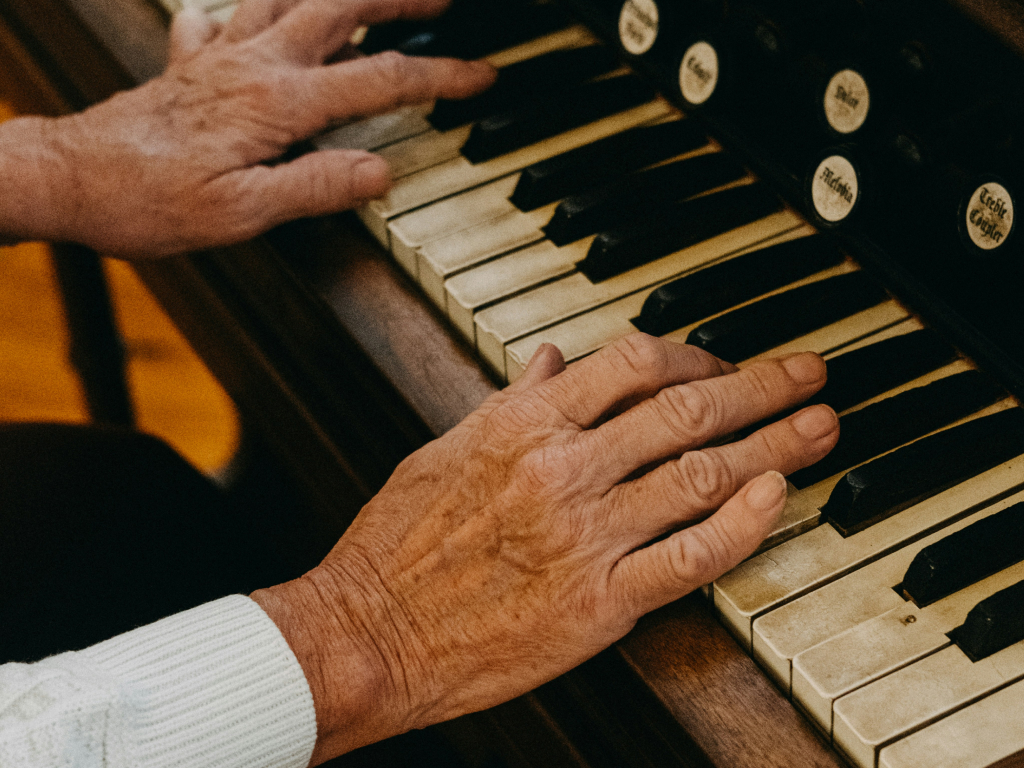Learn to play Valse Sentimentale No.1 by Eric Christian
Learn Eric Christian’s Valse Sentimentale No. 1 step by step with Clefer’s guided piano practice and real-time feedback.
September 22, 2025

These days I have been thinking of the benefits of playing the piano alongside a good practice method. And I guess the keyword for making the most out of our daily routine is consistency.
Consistency plays an important role in students’ lives as it helps to build up lasting habits while mastering time management and improving skills, such as memory, perception and focus. And it is amazing how a person might emotionally benefit from playing the piano.
Besides the proven cognitive function effects and the undeniable development of motor abilities, piano can be your best friend when it comes to coping with stressful moments.
It is well known that music has a powerful impact on our quality of life. Playing the piano helps us grow through challenges, bringing a deep sense of joy and accomplishment. Research has also shown positive effects on emotional wellbeing, including benefits for adults facing depression.
In addition, many studies suggest that people who engage in music training, even for a short time, are less likely to suffer from dementia. Research has also shown that adults who play the piano develop greater cortical plasticity than those who only listen to the instrument. This means that learning, memory, and other cognitive skills can be strengthened in pianists as new neural connections are activated.
All this said, pianists, piano teachers, and students alike will agree: the piano is a complex instrument, and it takes hard work to learn. That is why effective practice requires discipline. A consistent routine helps us stay motivated and achieve our goals, both short- and long-term. In this way, progress becomes more likely, and the journey more rewarding. Learning piano is also about building resilience, an ability that supports us not only at the keyboard but in many other areas of life.
That brings us back to consistency. I know it is not always easy. It can take time to settle into a new routine. And if you slip, simply start again. You can always adjust your schedule and find your rhythm. The important thing is to keep trying and encouraging yourself along the way.
I am confident that both your playing and your self-confidence will grow if you put these pieces of advice into practice:
i. Cultivate discipline by building a consistent routine.
ii. Write down your tasks along with your daily, weekly, and monthly goals.
iii. Warm up your fingers by starting with simple scales.
iv. Use a metronome and practice hands separately before putting them together.
v. Challenge yourself by focusing on the difficult sections of a piece, repeat them as many times as you like.
vi. Keep track of your learning with a daily practice journal.
vii. Seek feedback and ask questions to your teacher. Do not be afraid. Mistakes are part of learning. If you take online piano lessons, share your questions and notes between sessions to stay focused.
viii. Take time for yourself. Pause, breathe, and then return to the piano with fresh energy.
In conclusion, I would say to you: keep up with your piano practice! Do not try to be perfect. Be consistent instead. Walk towards your goals daily! Always remember that learning is a lifetime work. That way, you will certainly enjoy the process!
A piano teaching app like Clefer can support your practice between lessons with structure and gentle feedback. It helps improve piano skills step by step, keeping your routine clear and motivating alongside your teacher’s guidance.
Photo by Brandon Burridge.
Transform your piano learning journey with Clefer.